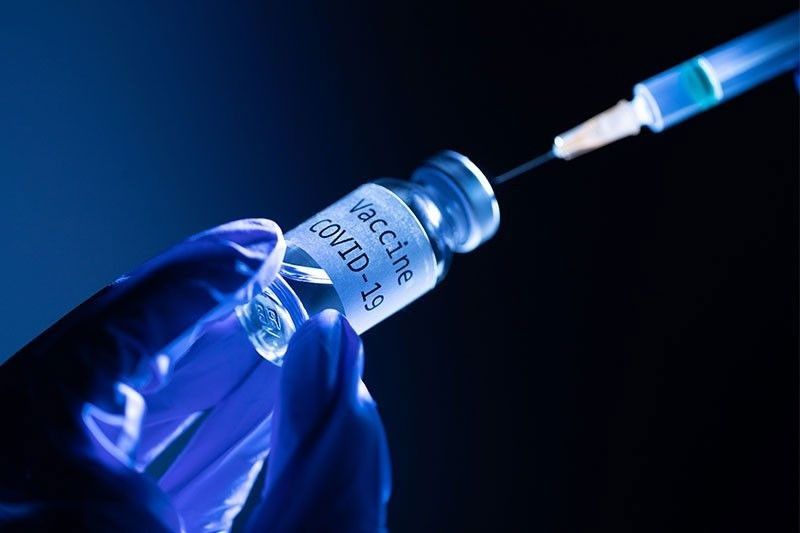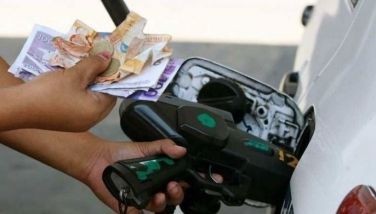Philippine seeks $325 million from ADB for vaccines

MANILA, Philippines — The Philippine government has requested approximately $325 million from the rapid response component of the Asian Development Bank’s vaccine access facility, an ADB official said yesterday.
ADB country director Kelly Bird said the $9-billion Asia-Pacific Vaccine Access Facility or APVAX offers rapid and equitable support to the lender’s developing members.
The component covers financing vaccine procurement and logistics costs.
“The Philippines can access between $400- (million) and $500-million lending for vaccine procurement. At the moment, the government has requested approximately $325 million from the first component of the facility – that’s the vetted response component. And that’s dedicated for financing the procurement of vaccines,” Bird said.
“ADB is working very closely and intensely with the government even over the Christmas and New Year period to carry out technical background work and preparing the vaccine project,” he added.
The Philippines’ debt is not a source for concern as the country has a “very strong” fiscal position to contract loans for its COVID-19 response, the bank official said.
Bird said Manila’s expected debt levels are “relatively low” for a country with a BBB-plus debt rating.
“The Philippines has a very strong fiscal situation coming into the crisis. They have significant fiscal space, they have a fiscal program that was announced a few months back for 2021 and 2022. The debt levels are increasing but they understand, (it) would be around 54 to 58 percent of GDP (gross domestic product) around 2022,” Kelly said at a press briefing.
“So that’s relatively low for a country that has a triple B-plus rating, so at this point in time, the country has quite strong fiscal fundamentals and so therefore debt is not really a concern,” he added.
The Philippines is planning to borrow P73.2 billion to buy vaccines for 60 million Filipinos. About P40 billion will be sourced from multilateral agencies ADB and World Bank while P20 billion will come from domestic sources like the Land Bank of the Philippines, Development Bank of the Philippines and government-owned or controlled corporations.
About P13.2 billion will be sourced from bilateral sources. The country’s budget deficit from January to October hit P940.6 billion, increasing by almost three-fold from the P348.3 billion posted in the same period last year.
Kelly said funding for COVID-19 vaccine is over and above the ADB’s 2021 lending pipeline.
“This is a new facility and it will not impact the lending pipeline for the Philippines for 2021 to 2023. And as I’ve mentioned, we approved our new lending pipeline last week, and that provides for funding on infrastructure, health projects, employment projects up to about $9.4 billion over that period. But this vaccine financing is over and above the lending pipeline,” he said.
Members have to present a complete needs assessment as well as a national vaccination allocation plan.
For a vaccine to be eligible for financing, it must meet one of the following criteria: must be procured via COVAX, prequalified by the World Health Organization or authorized by a Stringent Regulatory Authority for manufacture in an SRA country or authorized by an SRA country for manufacture in a non-SRA country.
“For example, Pfizer has had emergency use approval in the UK and the US. So it will qualify under that third criteria,” said Bird. “So long as the vaccine meets one of those three criteria, it will be eligible for ADB vaccine financing facility.”
Additional access criteria include vaccination needs assessment, vaccine allocation plan by the developing member and a mechanism for effective coordination among development partners also help ensure that vaccine support under APVAX can be effectively implemented.
Address underspending
Civil society group Social Watch Philippines (SWP) said the government must first find ways to address significant underspending for COVID-19 measures before even considering getting new loans.
SWP issued the call after releasing a study on COVID-19-related loans from the Asian Investment Infrastructure Bank (AIIB) and ADB.
“We are still in a continuing disaster so there is no time to lose in providing for the needs of our people at the soonest possible time,” Alvic Padilla, the author of the study, said.
The Senate earlier approved on final reading two measures extending the validity of the 2020 national budget and the Bayanihan to Recover as One Act (Bayanihan 2). Once enacted, these measures would allow government to spend unutilized funds from the current budget until June next year.
Citing Department of Budget and Management (DBM) data, Padilla, in a public presentation of his study, stressed that the government had spent less than what was programmed during the pandemic.
Instead of spending P3.268 trillion from January to September this year, the national government only utilized P3.022 trillion or 7.5 percent less than programmed, the DBM said on its website.
As of September, the government has borrowed $9.9 billion to address COVID-19, based on data from the Department of Finance. These include the $750-million AIIB loan, the subject of the study of SWP.
“The national government should strengthen its administrative capability to address underspending of COVID-19 loans,” said Ma. Victoria Raquiza, SWP’s co-convenor.
Such effort, she said, should include “addressing rigidities in the system that has delayed spending for and distribution of aid to a wide swathe of our people negatively affected by the pandemic.”
According to Raquiza, slower fund use is evident in the Department of Social Welfare and Development, the agency primarily in charge of providing aid and relief to the most vulnerable groups.
She said that in November, it was reported that the agency failed to utilize its P83-billion allotment for this year.
In its study, SWP also called on the government and its creditors to “provide and broaden meaningful spaces” to allow citizens’ groups to keep better track of the use and effectiveness of COVID-19 loans.
Once these spaces are made more open and participatory, citizens would be able to “unpack and analyze the performance of agencies implementing critical COVID-19 measures on health, social protection and economic relief for vulnerable groups,” Padilla’s study said.
“Citizens’ monitoring of these loans will help ensure that the loan proceeds are spent in the most effective, efficient and timely manner. It is also essential to monitor the impacts of servicing these debts in tax and budget policies in the long-term and to engage government into taking fiscal measures that will promote sustainable, equitable and adequate financing for development,” the study noted. – Alexis Romero, Rhodina Villanueva
- Latest
- Trending


























